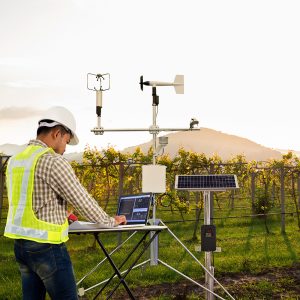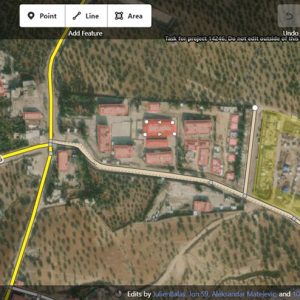Fall Term 2025 and Spring Term 2026 Applications Now Open
MS in Energy Policy and Climate
MS in Energy Policy and Climate Program Overview
With a foundation in climate science and a firm grasp on energy law and policy, you can make an impact now—and for future generations.
Start or advance your career in one of the fast-growing sectors in the world with a master of science in energy policy and climate degree from Johns Hopkins University. Learn the science behind renewable technologies and fossil fuel-based energy systems, explore the challenges climate change poses to people and the planet, and discover how strategic policy and sustainable energy can play a transformative role.
Pursue Your Degree On Your Terms
Our energy policy and climate master’s program was designed for working professionals. Take classes on campus or 100% online, and choose to attend full- or part-time. You’ll also have the flexibility to take courses that best fit your career goals; we offer multiple tracks and a variety of electives.
What It’s Like to Study Energy Policy and Climate at AAP

Emily Barkdoll MS in Energy Policy and Climate GraduateHaving courses with people who work for renewable energy companies, big oil companies, climate think tanks, and all types of non-profits provides additional depth to class discussions, which I find invaluable.
Why to Pursue an MS in Energy Policy and Climate at Hopkins
Whether you study online or on-campus, our Washington, D.C. location gives you access to experts and organizations on the front lines of climate change research and policy.
Leading Experts and Climate Scientists
A renowned research university, JHU is home to top energy technology experts and climate scientists. Our faculty members are scholar-practitioners, sharing their first-hand experience in climate change and energy policy from time with federal agencies, NGOs, the private sector, and abroad.
Career-Enhancing Focus Areas
Deepen your expertise within one of the five focus areas: Energy, Climate Change, Policy, Modeling, and Social Perspectives in Climate and Energy. Focus your studies more on the issues surrounding climate change, or explore renewable energy technologies, or consider developing effective policy solutions for the future.
Wide Array of Electives
Enrich your studies with electives such as Solar Energy: Science, Technology, and Policy, Global Energy Policy, Adaptation to Climate Change, The Electric Grid: Technology and Policy, and Understanding Public Attitudes for the Communication of Climate and Energy Policy.
Immersive and International Experiences
Participate in field studies around the country and world. Recent trips explored climate change and energy issues in coastal Louisiana, California, China, Luxembourg, and Australia. In your capstone project, you’ll solve a real-world environmental problem.
Ready to Take Action?
Join one of the fastest-growing industries in the world and use your expertise to work toward global and societal change.









